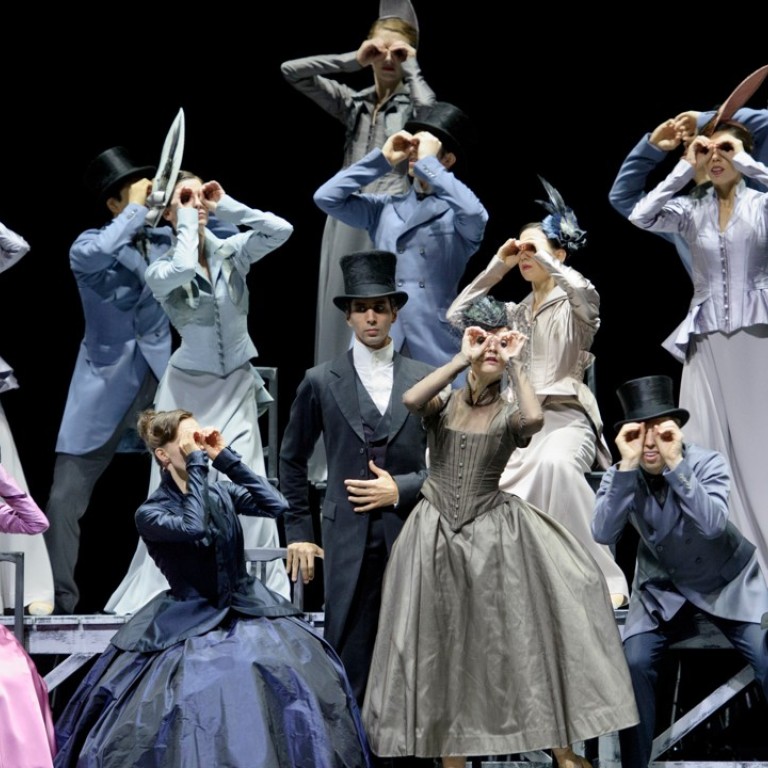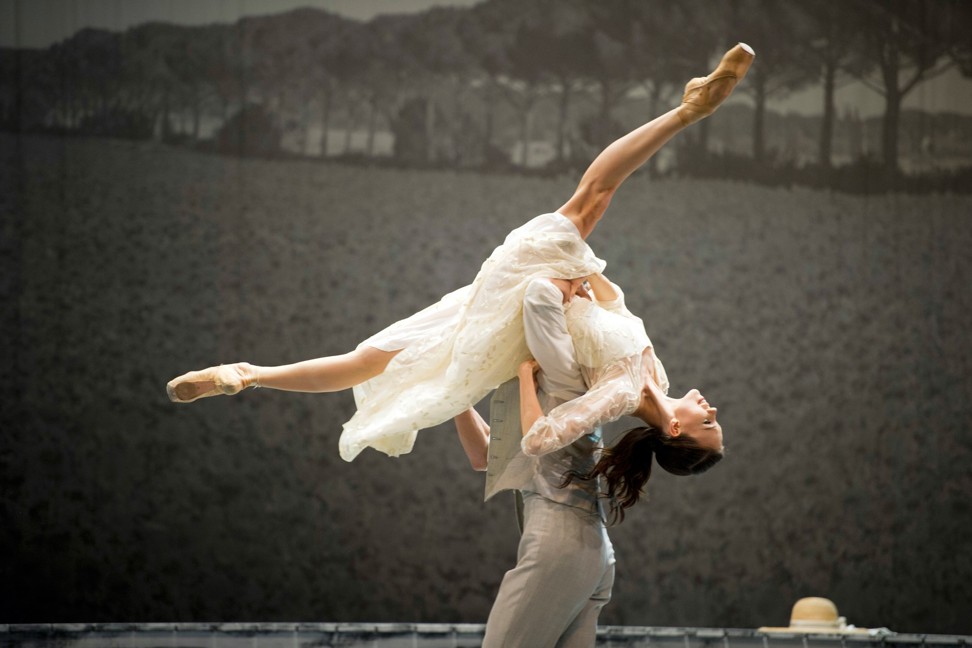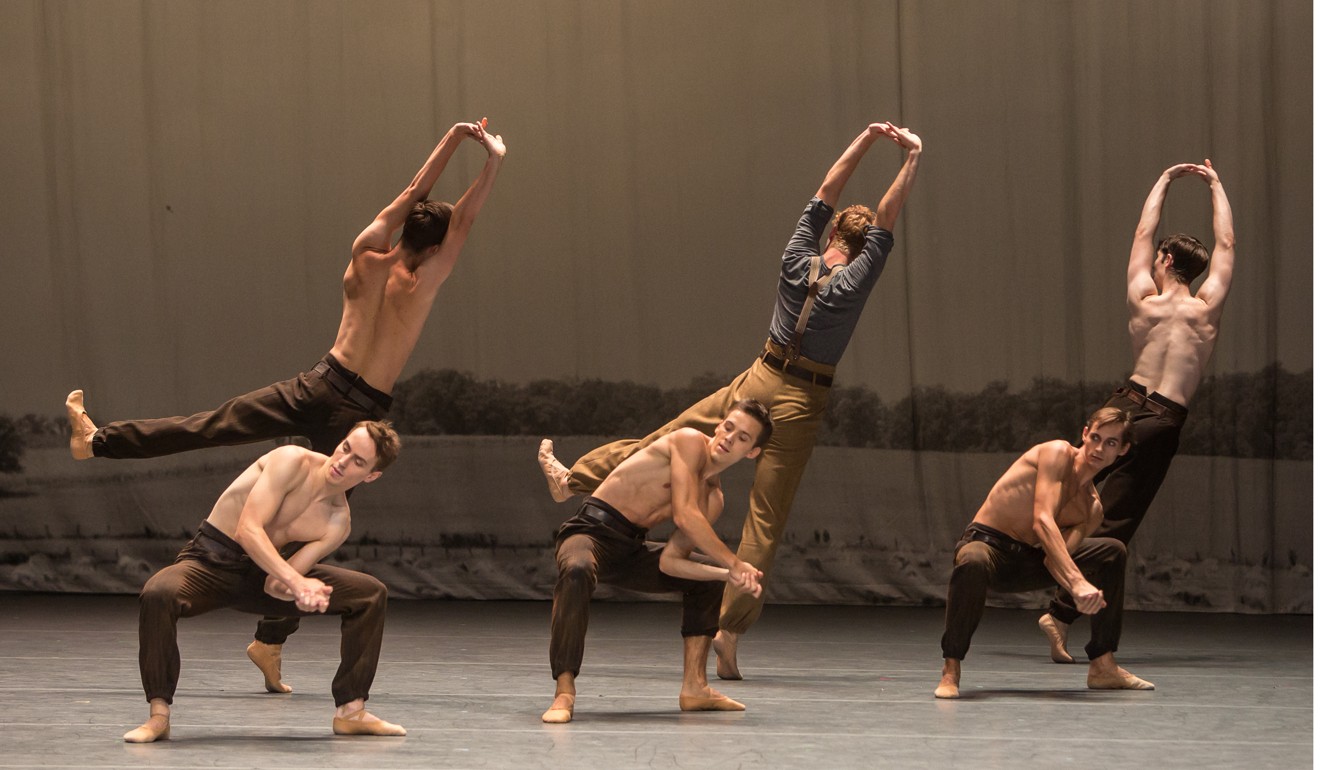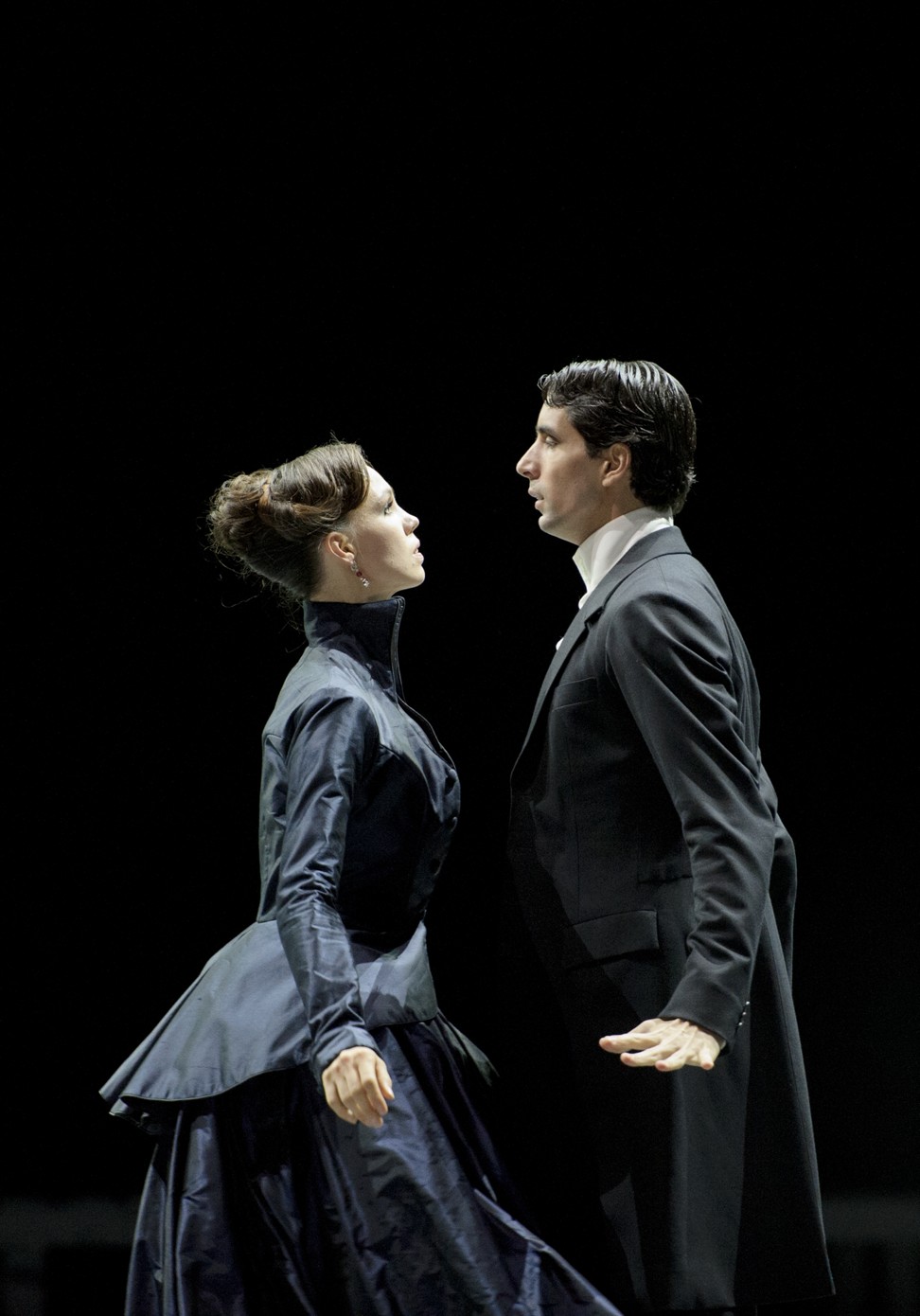
Zurich Ballet’s Anna Karenina for Hong Kong Arts Festival review: Spuck adaptation is enjoyable but has issues
Viktorina Kapitonova was a fine Anna and the costumes are ravishing, but artistic director Christian Spuck tries to cram too much into the first half and some of the casting – especially for Vronsky – was questionable
This year’s Hong Kong Arts Festival opened with the Zurich Ballet’s adaptation of Tolstoy’s Anna Karenina, which was choreographed in 2014 by the company’s artistic director Christian Spuck. The production has since been re-staged for other companies, notably in Moscow, a rare honour for a non-Russian version of one of Russia’s greatest novels.
If not the instant classic this might lead one to expect, the ballet is entertaining, the company dances to a high standard, and Emma Ryott’s costumes are ravishing.
The best – and worst – of Hong Kong’s performing arts in 2017
Most adaptations of Tolstoy’s masterpiece, whether for ballet or film, have focused on the central love story between Anna and Vronsky. Spuck has, with commendable ambition, set out to give a broader rendering of the book, with more emphasis on the relationships between two other, contrasting couples: Anna’s brother Stiva, an inveterate philanderer, and his wife Dolly; and the idealistic Levin and Dolly’s younger sister Kitty.

This is a huge canvas to tackle in 110 minutes and the results suggest Spuck might have done better either to narrow the focus or extend the work to three acts. As it is, too much is crammed into the first half, turning the story into a kaleidoscope of brief scenes that are hard to follow and don’t leave sufficient room to develop the characters and their relationships. The second half, which covers less ground in longer sequences, works much better.
The choreography is well crafted, if conventional. The best scene is the wedding of Levin and Kitty, which charmingly evokes the freshness and tenderness of their love. The duet for Anna and Vronsky during their sojourn in Italy, the time of their greatest happiness, is also attractive.

On the other hand, when Anna and Vronsky first make love, instead of the thrilling, erotic pas de deux that ballet can do supremely well (think MacMillan’s Manon, for instance), Vronsky simply rips off Anna’s bodice and humps her on the floor.
The score mixes Rachmaninoff with various modern composers. Two haunting Rachmaninoff songs, beautifully performed by mezzo-soprano Lin Shi and pianist Christophe Barwinek, were the musical highpoints. This was not least because they were live – the recorded score suffered from poor sound quality.

However, lovely though it is, Rachmaninoff’s Piano Concerto No. 2 has been used for so many love stories – notably cinema classic Brief Encounter – that it has become hackneyed. Meanwhile, using machine-like noises to accompany the haymaking sequence where Levin discovers the joys of country life was a puzzling choice.
Dramatic ballets depend, above all, on the performances. Here again, results were mixed.
Viktorina Kapitonova was a fine Anna, with plenty of detail in her acting – the final scene where she is preparing to end her life was especially powerful. Tars Vandebeek, a dancer of glorious flexibility, brought Levin to vivid life; Galina Mihaylova was a touching Dolly; and Giulia Tonelli and Wei Chen sparkled as Princess Betsy and her companion.
Review: Hong Kong Ballet Choreographers’ Showcase – dancers present a focused collection of short works
Other casting was more problematic. Although Daniel Mulligan danced well, he looked far too young to be convincing as Stiva. Above all, William Moore was miscast as Vronsky – he didn’t have the kind of charisma to make the audience believe that Anna would destroy herself for love of him, nor did he and Kapitonova have the intensity of rapport to convey the couple’s passion.
Anna Karenina, Zurich Ballet, Hong Kong Cultural Centre Grand Theatre. Reviewed: February 23

